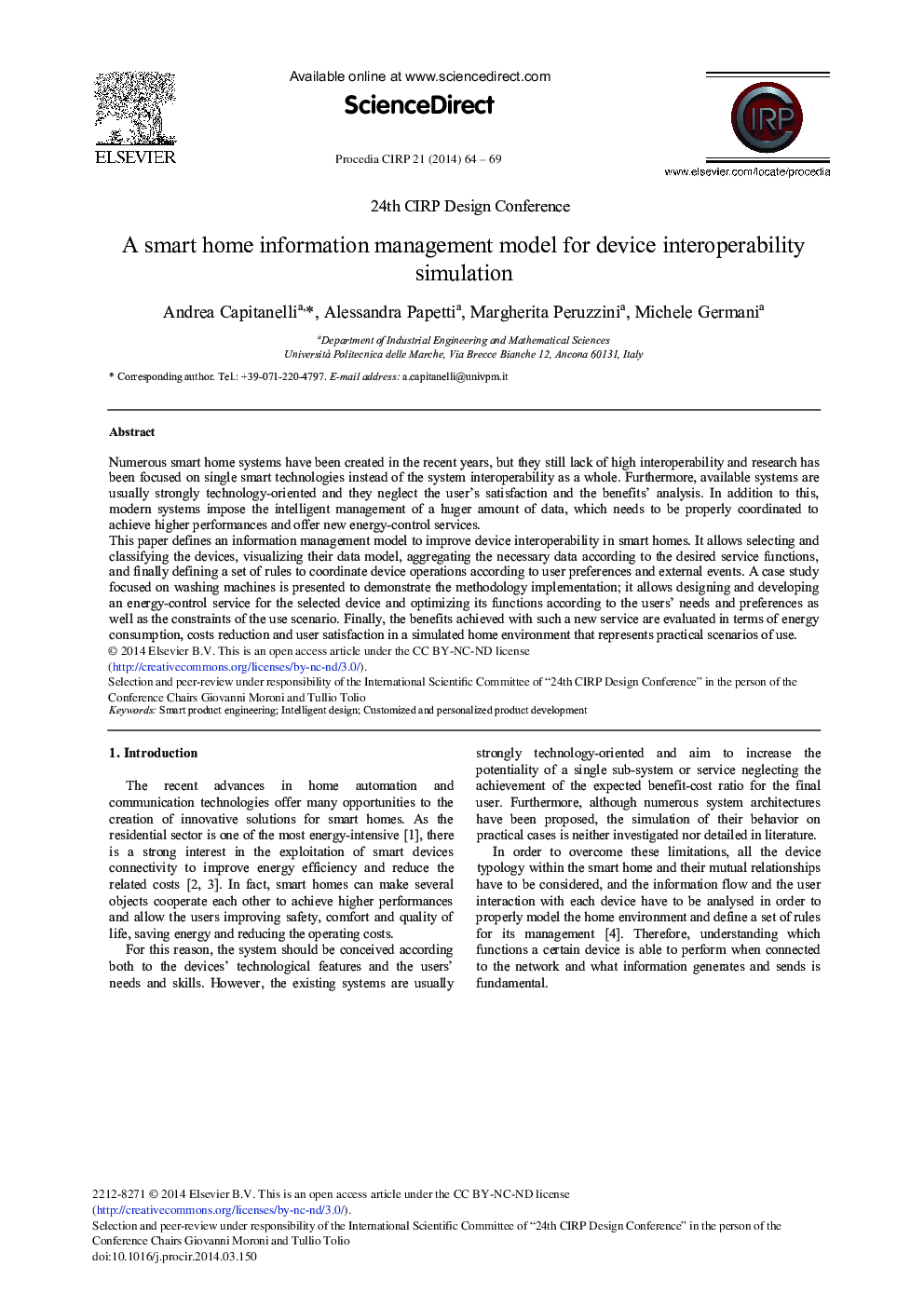| Article ID | Journal | Published Year | Pages | File Type |
|---|---|---|---|---|
| 1700003 | Procedia CIRP | 2014 | 6 Pages |
Numerous smart home systems have been created in the recent years, but they still lack of high interoperability and research has been focused on single smart technologies instead of the system interoperability as a whole. Furthermore, available systems are usually strongly technology-oriented and they neglect the user's satisfaction and the benefits’ analysis. In addition to this, modern systems impose the intelligent management of a huger amount of data, which needs to be properly coordinated to achieve higher performances and offer new energy-control services.This paper defines an information management model to improve device interoperability in smart homes. It allows selecting and classifying the devices, visualizing their data model, aggregating the necessary data according to the desired service functions, and finally defining a set of rules to coordinate device operations according to user preferences and external events. A case study focused on washing machines is presented to demonstrate the methodology implementation; it allows designing and developing an energy-control service for the selected device and optimizing its functions according to the users’ needs and preferences as well as the constraints of the use scenario. Finally, the benefits achieved with such a new service are evaluated in terms of energy consumption, costs reduction and user satisfaction in a simulated home environment that represents practical scenarios of use.
